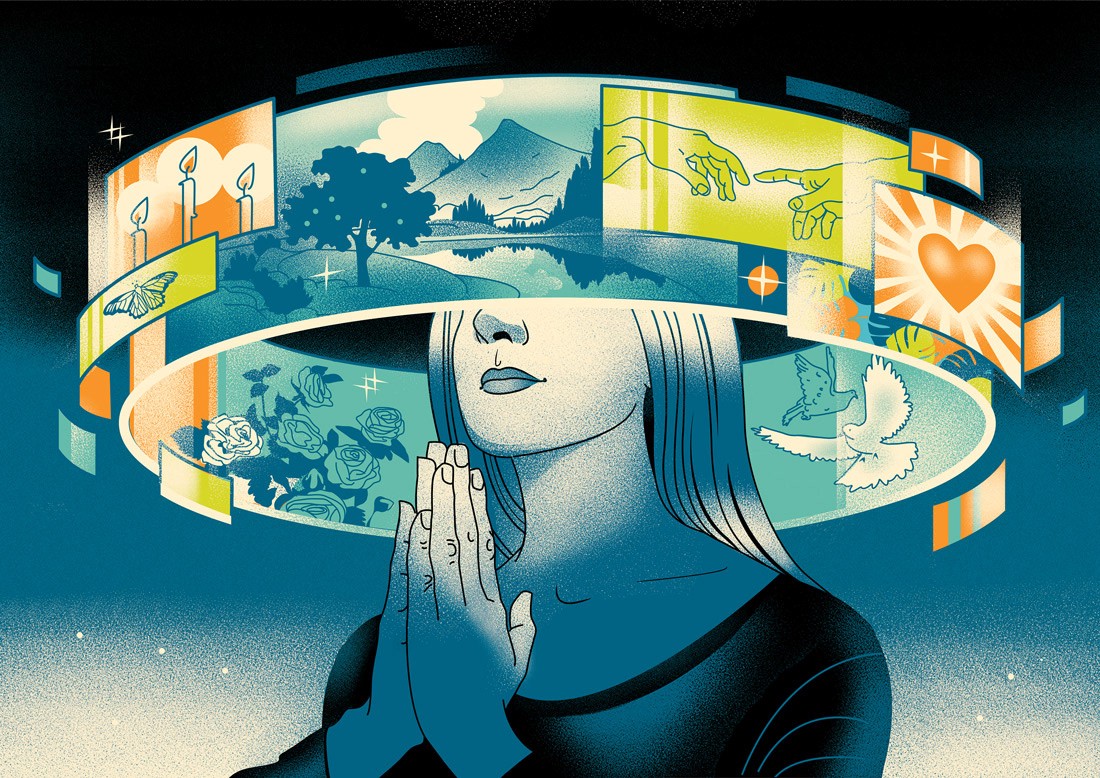Spirituality and the Mental health field have a common goal of reducing emotional suffering, liberating the soul, and energize the self. A major aim of human beings for ages has been to look for practices to liberate the soul from suffering, both physically and mentally. Every civilization, ancient or new came out with its method of dealing with suffering. Almost all ancient civilizations believed in the existence of God, soul, and spirituality and followed methods through which spiritual enlightenment could be achieved.
In Europe especially, after the renaissance period, there occurred a rebellion by science against the church, which claimed to be superior due to the assumed affirmation by God and indulged in oppression and exploitation of humans.
The Cartesian dictum stressed the notion of individuality and consequent rationality, the center of all science-related activities and the modern world. Science was successful in overthrowing the church due to which spirituality was declared as unscientific, and irrational, and its practices were demolished.
With the arrival of the 19th century, imperious disciplines of mental health emerged- psychiatry and psychology, which claimed to deal with the mental disorders, and sufferings associated with it. However, these disciplines were followed within the strict implications of science and in order to get approval from the mainstream, they complied with the limits of the paradigm and chose to ignore valuable insights from spirituality. Both spirituality and the contemporary mental health field became competitors but their major goal was still the same-putting path and theoretical framework divergent. This resulted in conflicts and mutual denigration.
For example, Freud, a renowned psychoanalyst believed that religion is nothing but originated from “man’s need to tolerate his helplessness and rise from the memories of his own childhood and the childhood of the human race. Man’s helplessness never leaves him and stays along with it, his love for his father, and the gods. The gods have the true power of threefold task
- Breaking the fear of nature,
- Making men aware of the cruelty of fate, and
- Pay for the sufferings and privations which a civilized life had imposed on them.
Backing up similar claims, leading spiritualists of the 20th century, Sri Aurobindo alerted people that the exaggeration of the role of suppressed sexual complexes can have a nasty influence and make the mind more impure than before. The self-chosen area of these psychologists is poor, dark, and constraint. That is the promise of the arrival of greater psychology waiting for its time before all of these poor groups disappear and come to nothing.
Over the first half of the 20th century, psychology prevailed amongst psychiatrists, psychologists, and other mental health professionals as an overt antagonism addressing spirituality.
This offered a great environment for the emergence of what is now called the fourth force in psychology, transpersonal psychology. Transpersonal psychology came into force into the late 1960s and it expanded the vision of positive mental health included spiritual aspects, man’s need for transcendence, and for union with the greater whole.
In recent times, both spiritualists and mental health professionals recognize each other’s role in reducing human suffering and evolving consciousness. The Spiritual & Mystical Development can be clearly seen at the link. Unlike traditional professionals, modern psychologists and psychotherapists have stopped complaining about spirituality and handle it with sensitivity and empathy. This transformation is clearly seen in the diagnostic systems. Whereas DSM-III-R was against religious viewing and considered it bad for mental health, DSM-IV-TR gave a diagnostic category that included religious and spiritual problems that can become the center of concern for clinical attention.


